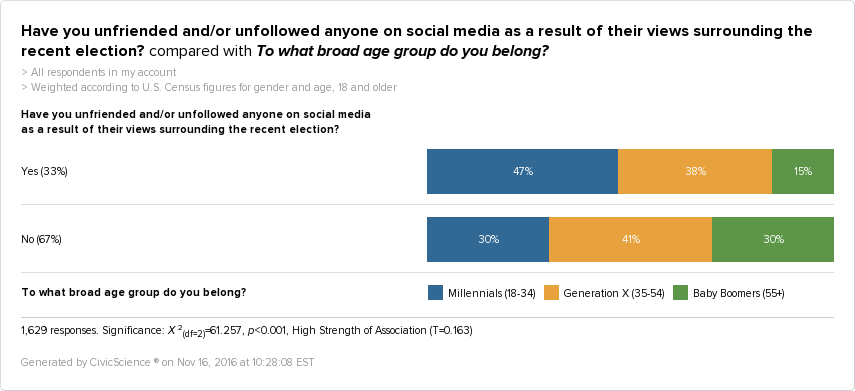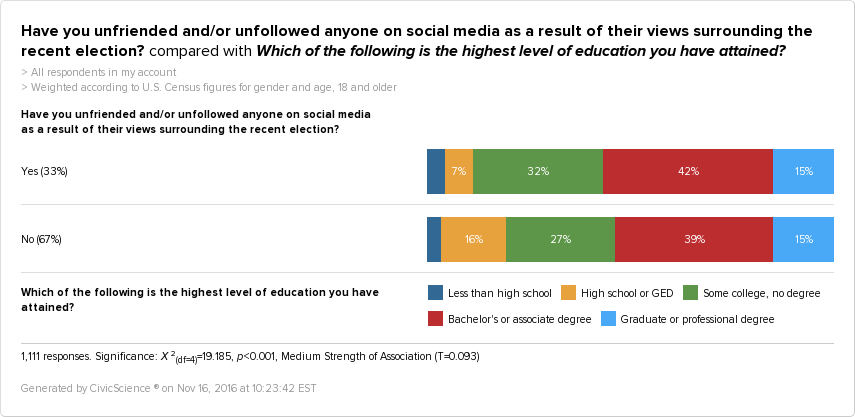The election is over. But then again…no it’s not. Shrapnel will fall for years and years to come. Like me, you may have also noticed friends and family completely disfiguring their social networks during this election season to avoid people with whom they disagree. Are they an anomaly or the norm?
Today just so happens to be National Unfriend Day (yes, it’s real) so what better time to look into this unfriending frenzy.
If you’ve unfriended or unfollowed anyone because of this election, you’re not alone. Excluding the people who answered that they don’t use social media, here’s what we found.
33% of adults have unfriended or unfollowed someone (possibly more than one person) because of their views surrounding the recent election. That’s huge.
A few defining characteristics of those who have unfriended someone due to this election, we’ve found, surround party affiliation, age, and level of education.
Party Affiliation
 Registered Democrats are much more likely than other registered voters to say they have unfriended someone because of their views. This trends holds true for all age demographics as well.
Registered Democrats are much more likely than other registered voters to say they have unfriended someone because of their views. This trends holds true for all age demographics as well.
Age
Given that younger people tend to be Democrats, it’s not surprising that Millennials are the most likely age group to have unfriended someone this election season.
Millennials are often told that they don’t let things go – that they falsely believe battles are won over social media. These numbers may, in some manner, validate these claims by the older generations.
Education
Interestingly, people who have graduated from college are slightly more likely to say they have unfriended someone due to the recent election, but not by much. Both groups have an equal percentage of people who hold graduate or professional degrees, but those who haven’t unfriended others are more likely to only have a high school diploma or GED.
So it seems that although education may play a role, it is not the most critical factor in the latest cycle of unfriending.
Also, it’s interesting to note that adults who studied the social sciences or arts and humanities as undergraduate students are more likely to say they have unfriended someone because of this election.
What do you think? Is that what you would have guessed?
What Does This Mean?
These insights highlight the division throughout our country – which I’m sure does not come as a major shocker to most people. Part of me wants to say that if you disagree with someone, it’s important to keep listening to understand where they’re coming from.
Another part says “No way! If someone is saying something you morally disagree with, get rid of them.” Many have addressed this dissonance and have said that unity will not come if we don’t listen to and speak with people from different viewpoints.
Others say if that’s what it would take for unity to take effect, then unity is no longer the goal.
Throughout this election season, calls have been made for both, and no one really knows how to address this deep division, especially given that this is the first election where the majority of the public has received their news through social media.
Those who say they do know how to fix it, well, we’ll see.











